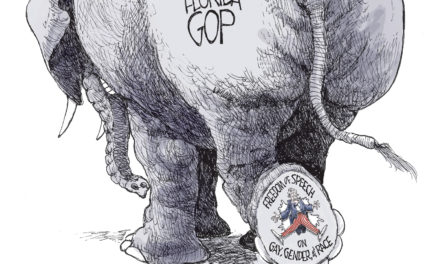We want to continue a discussion that was begun by the Memphis Flyer a couple of weeks ago. It asked nine people for their ideas about what they would do if they were in charge of Memphis.
Here’s the link to all of the ideas. We’re posting what was printed from us below, but here’s the question for you:
What would you do if you were in charge of Memphis?
We’re always telling you what we think, so tell your ideas to us and others so we can have a conversation about what Memphis needs to be doing to move in the right direction.
Just for the record, here’s what one of us answered to the question in the Flyer article:
At the risk of being branded for civic heresy, I’d like Memphis to adopt Nashville’s attitude. I admit that I’ve never really “gotten” Nashville, but I nonetheless grudgingly admire something imbedded in its civic culture — ambition.
I was in Nashville shortly after its school district was placed on the state’s “high priority” list. There was a palpable outrage among city leaders that such a thing could happen there, and they vowed to do something about it. Here, more than 100 of our city schools do not meet state benchmarks, but there’s a pervasive sense that that’s just the way things are in Memphis.
In Nashville, better decisions flow from this ambition and sense of purpose. Its political and business leaders simply refuse to accept second best or any suggestion that they shouldn’t set national standards. It’s hard to imagine a Bass Pro Shop inhabiting a signature building there.
When Nashville wanted to build a symphony hall, it did not append one onto a convention center so it could finagle hotel-motel taxes. Instead, it built a symphony center that is a monument to its cultural commitment. When it came time to build a new central library, it built it as a reminder of the importance of urban design — and downtown.
The magic in Nashville isn’t the result of consolidated government. Rather, the magic is found in a special strain of leadership that brings all civic resources, public and private, to the table to solve problems. And yet, Memphis needs consolidation, not because of promised savings that are unlikely to materialize, but because we need to do something to shake up the status quo and send the message to the rest of the nation that things are changing here.
We begin by being brutally honest, because troubling national indicators should inspire a new sense of urgency and a new way of thinking. We need action on all fronts. We need Highway 385 to be a toll road. We need to attack teenage pregnancy by getting serious about handing out birth control. We need to eliminate all tax incentives for low-wage, low-skill jobs. We need to find the best urban school superintendent and pay whatever it takes to get that person here. We need to get more city school students to college graduation, because they are the best predictor of our future economic success. We need to transform our riverfront from a stage set trapped in time to a vibrant magnet for talent.
We need to rationalize our tax structure. It’s simply not right that the less you make in Memphis, the more you pay in taxes as a percentage of income. It’s intolerable that city taxpayers pay a disincentive to live here and pay for programs and amenities that are regional in nature. If we move regional services to the regional (Shelby County) tax base, the Memphis tax rate can be comparable to Germantown’s.
These things don’t require that much money. They do, however, require ambition.



